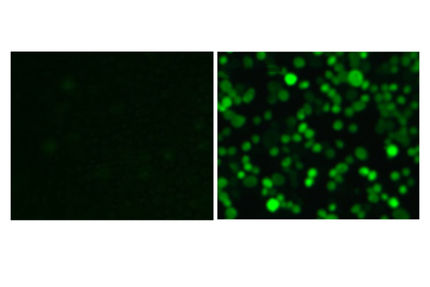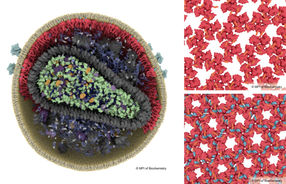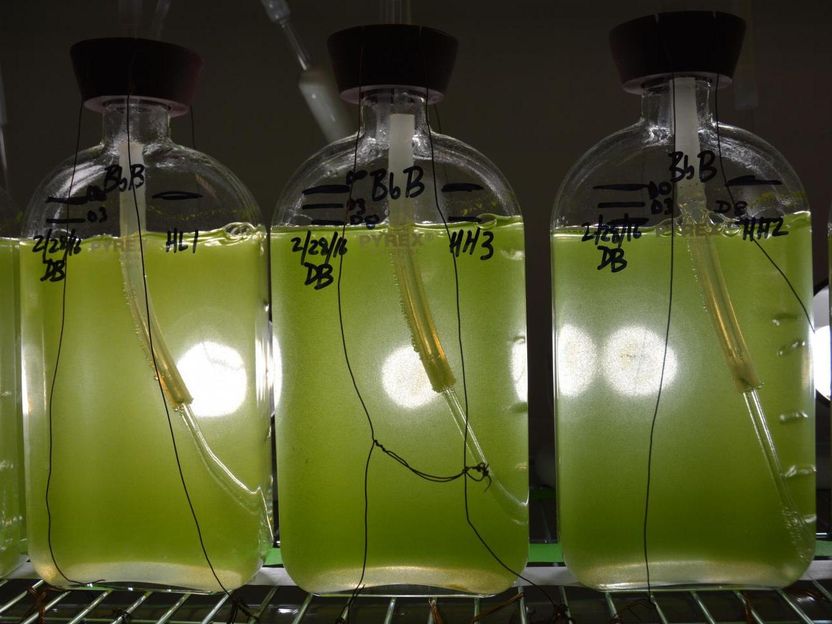How herpesviruses escape from the immune system
Herpesviruses are the cause of many diseases, such as shingles or mononucleosis ('kissing disease') that compromise our quality of life. While the human immune system can usually prevent the spread of herpesviruses, it cannot entirely eliminate them from our bodies. This is because these viruses contain a vast arsenal of factors that thereby conceal the virus from the immune system. These are the so-called immuno-evasins. The research group of Sebastian Springer, Professor of biochemistry and cell biology at Jacobs University Bremen, have now explained the function of one such immuno-evasin.
When herpesviruses infect a cell and multiply, they can be detected by the T cells of the immune system because the infected cell will show certain proteins on its surface, the so-called MHC-I proteins. These proteins act as a warning signal: they bind other proteins on the surface of the T cell and activate it to destroy the virus-infected cell. The herpesvirus MCMV blocks this warning signal: it contains a factor, known as gp40, that prevents the transport of the MHC-I proteins to the cell surface. The virus evades the immune response, and so gp40 belongs to the class of the immuno-evasins.
The Springer group, supported by DFG and the Tönjes Vagt Foundation of Bremen, have now gathered decisive insights into how the gp40 immunoevasin achieves its function. Springer describes the processes with a simple analogy: "Imagine that gp40 has two hands. With one hand, It holds on to a fixed point within the cell, and with the other hand, it grabs the MHC-I protein. Of course now, the MHC-I protein can no longer make its way to the cell surface." Springer’s PhD student, Venkat Raman Ramnarayan, has managed to identify this fixed point in the cell interior, and it turned out to be a cellular protein called TMED10, with which the Springer Lab was already familiar. "We were very well equipped to investigate the interaction between gp40 and TMED10", says Springer. "And now, we also know how the MCMV virus can escape from the immune response."
The results are not directly useful for patients, yet they do lay the foundation for future therapies which can strengthen and support the immune response against viral infections.
Original publication
These products might interest you

Kjel- / Dist Line by Büchi
Kjel- and Dist Line - steam distillation and Kjeldahl applications
Maximum accuracy and performance for your steam distillation and Kjeldahl applications

AZURA Purifier + LH 2.1 by KNAUER
Preparative Liquid Chromatography - New platform for more throughput
Save time and improve reproducibility during purification

Get the analytics and lab tech industry in your inbox
By submitting this form you agree that LUMITOS AG will send you the newsletter(s) selected above by email. Your data will not be passed on to third parties. Your data will be stored and processed in accordance with our data protection regulations. LUMITOS may contact you by email for the purpose of advertising or market and opinion surveys. You can revoke your consent at any time without giving reasons to LUMITOS AG, Ernst-Augustin-Str. 2, 12489 Berlin, Germany or by e-mail at revoke@lumitos.com with effect for the future. In addition, each email contains a link to unsubscribe from the corresponding newsletter.



























































